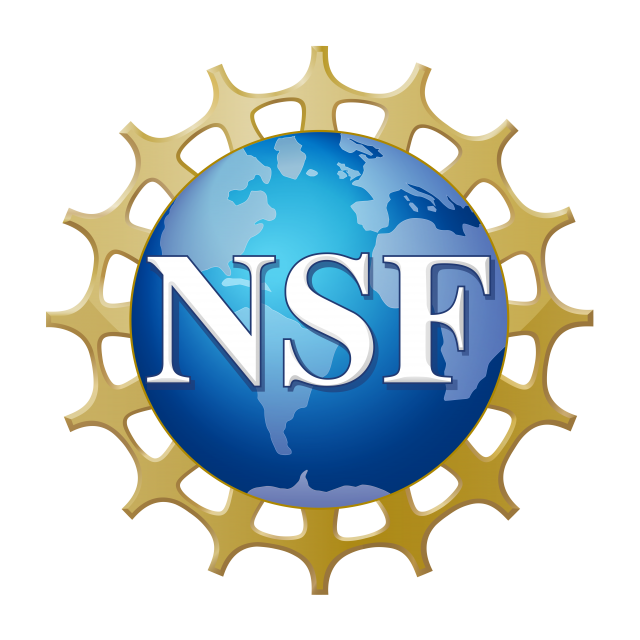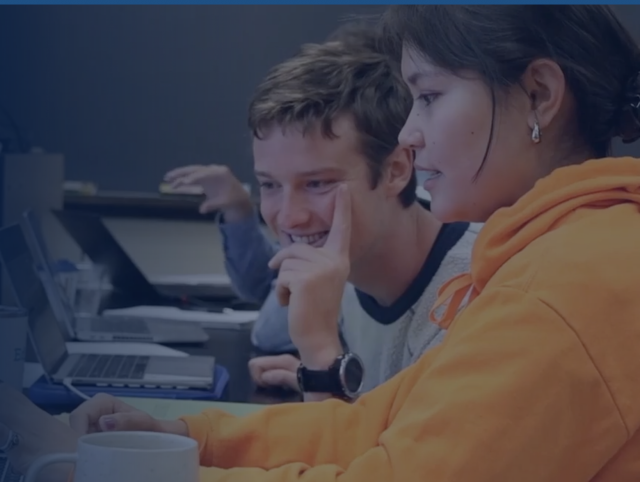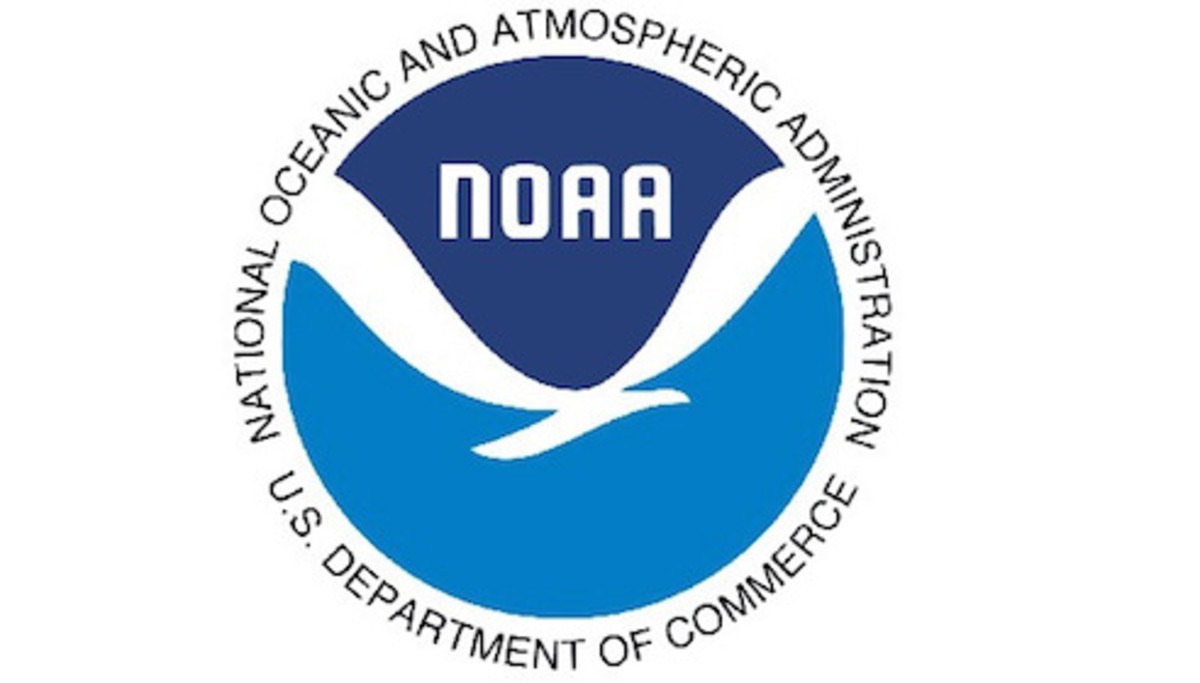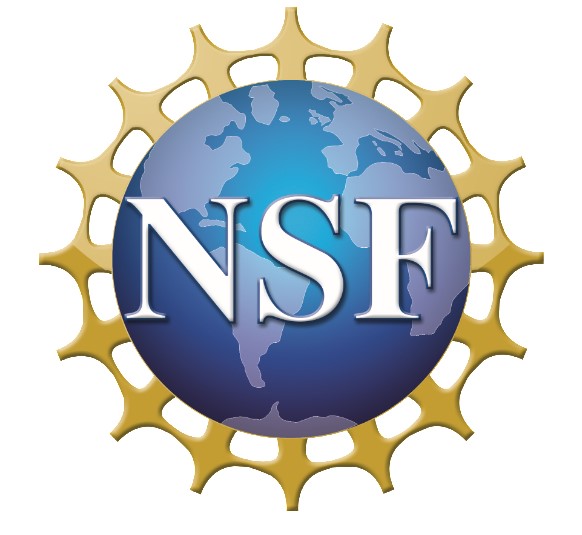Posts Tagged ‘Funding’
Funds Available for Using OOI and Other Long-Term Research Associated Data
On April 23, 2024, the U.S. National Science Foundation (NSF) issued a Dear Colleague Letter: Using Long-Term Research Associated Data (ULTRA-Data). This program encourages proposals that take advantage of the multidisciplinary, long-time series measurements through programs such as the Ocean Observatories Initiative (OOI), the National Ecological Observatory Network (NEON), and Long-term Ecological Research (LTER) and others that collect environmental data, make observations, test hypotheses, and, in some cases, conduct experiments.
Funding for the ULTRA-Data proposals will come from participating NSF divisions and offices including the Geosciences and Biological Sciences. OOI PIs are able to participant in proposal preparation and, if funded, research activities, as long as the work is separate from OOI-supported activities. NSF will look closely at submissions that include OOI personnel, so discussion before submission is strongly recommended.
Read MoreNSF Announces Grants Related to OOI Education; Funding Opportunities Remain
The Ocean Sciences Division (OCE) of the National Science Foundation recently announced two awards related to Ocean Observatories Initiative (OOI) education: a renewal of the OOI Data Labs with Rutgers University and a microcredentialing program at the Marine Technology Society (MTS). The Data Labs project offers opportunities for OOI data users’ participation, and the MTS project will provide a widely available microcredential badging opportunity within a few years.
The OOI Data Labs involves representatives of Rutgers University, Stockton University, Hillsborough Community College, City University of New York Queens College, and the Science Education Resources Center at Carleton College, who will support curriculum development and student engagement using advanced technologies of the OOI. Under previous NSF funding, Ocean Data Labs successfully created and tested a lab manual that includes a collection of laboratory exercises using OOI data, as well as holding hands-on workshops where students and faculty learned how to use OOI data to answer ocean-related science questions.
The MTS award will be used to establish a microcredentialing program to address core competencies required for employment in the blue economy. Microcredentials are short, competency-based recognition that allows a learner to demonstrate mastery in specific areas. By 2025, MTS aims to offer six microcredentials, including a foundational microcredential in Underwater Gliders, Remotely Operated Vehicles (ROVs), Sonar, and Deck Operations. Rutgers University and Northwestern Michigan College will be developing the program along with MTS.
“NSF is pleased to support both these projects that promise expanded use of OOI data in the classroom and skills that will promote competency in some of the advanced technology used by OOI to collect data,” said Elizabeth Rom, Program Director of NSF’s Directorate of Geosciences. “We continue to seek innovative proposals that can serve to integrate OOI data more broadly into the learning and scientific community. We are seeking to support efforts that teach researchers or educators how to use OOI data and tools, that develop additional tools or instructional materials using OOI data or that serve to create communities of practice to use OOI data for multi-investigator, community-driven research.”
Rom provide details of three open funding opportunities:
- NSF 22-059 Dear Colleague Letter that encourages curriculum development proposals with the goal of improving the education of the next generation of ocean technicians, data scientists, ocean engineers, and ocean scientists.
- NSF 23-134 Dear Colleague Letter that encourages workshop proposals to develop connections between academic departments and ocean industries, ocean technicians, data scientists, ocean engineers, and ocean scientists.
- NSF 21-24 Dear Colleague Letter encourages research addressing Critical Aspects of Sustainability (CAS) related to climate change solutions. Proposals addressing cross-cutting topics could focus on technology and workforce development with an emphasis on behavioral and social aspects related to climate mitigation and adaptation. Potential relevant topics in red may include:
o Measurement and sensing innovations;
o Artificial Intelligence and other data analytics, computational and statistical modeling and simulation approaches that directly address climate change solutions;
o Understanding the role of human behavior in achieving mitigation strategies;
o Energy and climate education, capacity building, and broadening participation.
Article was posted on October 26, 2023.
Read MoreNOAA Ocean Exploration FY22 Funding Opportunity
We are sharing this notice on behalf of the NOAA Office of Exploration in case it is of interest to OOI data users:
NOAA Ocean Exploration (formally the NOAA Office of Ocean Exploration and Research, OER), is soliciting proposals to conduct or support ocean exploration resulting in outcomes that provide or enable initial assessments about unknown or poorly understood regions of U.S. waters. This funding opportunity will focus on the outcomes of the Workshop to Identify National Ocean Exploration Priorities in the Pacific hosted by the Consortium for Ocean Leadership (COL) in 2020 in partnership with OER. Proposals should support the ocean exploration topical priorities or spatial priorities in the U.S. Exclusive Economic Zone (EEZ) identified in the “Report on the Workshop to Identify National Ocean Exploration Priorities in the Pacific.”
Proposals should also support the National Strategy for Mapping, Exploring, and Characterizing the United States Exclusive Economic Zone (national strategy). Proposals for the ocean exploration and marine archaeology themes must be for projects in unknown or poorly understood areas as referenced in the national strategy’s implementation plan and within the U.S. EEZ in the Pacific Ocean.
The Pacific priorities workshop report stresses the active awareness of the cultural context in which ocean exploration is often conducted. Recognizing the unique and numerous Pacific communities as partners and stakeholders enhances the overall impact of the ocean exploration enterprise through wider public support, a more diverse workforce and community of practitioners, and incorporation of traditional knowledge systems throughout the process. Applicants should consider including the interests of tribal nations and Indigenous peoples within targeted exploration areas and engaging these communities in a meaningful way.
OER is soliciting proposals focused on any one of the following three themes:
1. OCEAN EXPLORATION: Exploration of the biological, chemical, and physical ocean environments and areas to inform future characterization, research, and responsible ocean stewardship in unknown or poorly explored U.S. deepwater areas (see the definition of ocean exploration in the national strategy). Areas proposed for exploration must be at water depths of 200 m or more. OER is particularly interested in themes and/or geographic priorities identified by the COL Pacific workshop report, including proposals on deep-ocean acoustics, the water column, seafloor habitat, biology, and marine resources. The use of autonomous and other innovative technologies is an OER priority.
2. MARINE ARCHAEOLOGY. Exploration and discovery of underwater cultural heritage sites and objects to enrich U.S. maritime history and inform decisions concerning site, feature, or object preservation and potential seafloor use. Marine archaeology projects can be conducted in any water depth. OER is particularly interested in proposals focused on themes and/or geographic priorities identified by the COL Pacific workshop report, including submerged evidence of early human migration and occupation on the continental shelf and places significant to U.S. history. The use of autonomous and other innovative technologies is an OER priority.
3. TECHNOLOGY. Application of new or novel use of existing ocean technologies or innovative methods that could increase the scope and efficiency of acquiring ocean exploration data and expanding exploration data availability and use. Proposed ocean technologies must be applicable to water depths of 200 m or greater, preferably full-ocean depth (testing in shallower water or lab-based testing is acceptable). OER is particularly interested in proposals focused on innovative sensors and technologies that could increase the capabilities of autonomous seagoing systems and artificial intelligence (AI) and machine learning (ML) applications that could improve ocean exploration data usability and accessibility. Consult the NOAA Artificial Intelligence Strategic Plan for information on NOAA defined AI/ML.
The deadline for the pre-proposal submission is June 21, 2021 at 11:59 p.m. EDT. The full proposal is due on October 8, 2021.
Please see the attached document for the notice of funding opportunity published on May 17, 2021. The notice is also on the NOAA Ocean Exploration website.
A webinar about the funding opportunity will be held on May 26, 2021, at 1 p.m. EDT. Registration is required. A recording of the webinar will be posted on the Federal Funding Opportunity web page on the NOAA Ocean Exploration website after the event. Additional questions may be directed to oer.ffo2022@noaa.gov.
Read MoreFunding Opportunity to Support Dissemination and Use of OOI data
The Ocean Sciences Division of the National Science Foundation (NSF) issued a “Dear Colleague letter” on 18 February to encourage wider use of the OOI data by supporting workshops, conferences or other training events to introduce researchers and educators to available data and community tools.
NSF is encouraging researchers or educators to propose workshops, conferences or other training events to 1) teach other researchers or educators how to use available tools and data; 2) develop additional community tools or instructional material to use the OOI data; or 3) create communities of practice that use the data for multi-investigator, community-driven research purposes. The goal of such activities is to promote development and dissemination of the OOI data tools and research opportunities.
Two- and four-year U.S. institutions of higher education and U.S. non-profit non-academic organizations are eligible to submit relevant proposals.
NSF intends to support about 15-20 awards in FY2020. Proposals may be submitted at any time, but at least six months prior to the planned event. To be considered for FY2020 funding, proposals should be submitted before May 15th. Submission details are available here.
Read More



